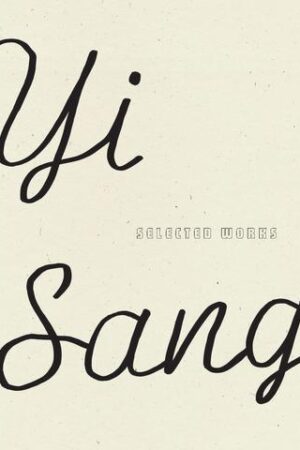Selected Works
by Yi Sang, edited by Don Mee Choi,
translated by Jack Jung, Sawako Nakayasu, Don Mee Choi, and Joyelle McSweeney
reviewed by Amanda Auerbach
Yi Sang: Selected Works presents the writings of the Korean modernist poet Kim Hye-kyŏng (1910–1937)—who, living under Japanese colonial rule at the beginning of the twentieth century, adopted the Korean pen name Yi Sang. It includes forty-nine poems translated from the Korean by Jack Jung, eighteen poems translated from the Japanese by Sawako Nakayasu, six essays translated from the Korean by Jack Jung, three stories translated from the Korean by Don Mee Choi and Joyelle McSweeney, a Yi Sang collage by Don Mee Choi, and an afterword by Joyelle McSweeney. Yi Sang’s work, influenced by Dada and surrealism, feels as urgent as it does playful. For Yi Sang’s speakers and narrators, dehumanizing aspects of life, such as violence, can only be adequately processed as estranged language and as dream.
Yi Sang’s Korean and Japanese poems, essays, and stories address imperialism, war, childhood, art, and capitalism; they take units of language and spin them into larger webs. Because language refers to language, it can be spun into poetry; because it refers to creatures and events, it can be spun into story; because it refers to the self and its experiences, it can be spun into essay. But the units of words out of which a web is woven retain a quality of their own, like the color of thread.
The collection starts out with an orienting timeline, but it saves further introduction until the reader has read the remarkable Korean poems that make up much of the volume. The first poems work as primers for reading, starting with children and a counting exercise:
13 children speed toward the way.
(For the road a blocked alley is appropriate.)The 1st child says it is scary.
The 2nd child says it is scary.
The 3rd child says it is scary.
The 4th child says it is scary.
The poem speeds on its way, from one numbered child to the next. Each line is repeating and each is its own line, which is a blocked alley and does not go on forever. The stanza break between the tenth child and the eleventh suggests that time passes, which might mean we are no longer in a counting exercise and there are real children who are scared. After thirteen children:
Among 13 children there are scary children and scared children and they are all
they are. (It is better that there is no other excuse)
The experience of dying brings with it awareness of being only a child, being all one is. This is better than being an adult and having excuses for being scared, believing one’s life has value beyond the fact that one is all one is. Many of Yi Sang’s poems are deceptively inviting in this way. They are only (or at least mostly) difficult in ways that count, in ways that have high-stakes implications or enact an experience of blockage.
Compared to the poems that came before, Yi Sang’s Japanese poems have a disquietingly playful, anything-goes quality. From “Le Urine”:
A wind blew in like a flame, however however there is indeed a lens like ice. Melancholy is pure white like the DICTIONAIRE. The green scenery casts a blank expression upon the retina and so anything all goes on in a grey and cheerful way.
The extra “however” could be a mistake in the act of composition, or it could evoke the rule-free quality of “anything all goes on”—why not another “however”? This idea that anything can go on is not neutral, but is a consequence of an empire that places words and people in new contexts and thus deprives them of their original meaning and relation to each other.
A work about translation in addition to collection of translations, this Selected Works does not just enable English-speaking readers to experience Yi Sang’s work in English. It also catalogs the personal and idiosyncratic relationships not just to Yi Sang but to other translators and poets that mediate the translators’ and poets’ access to Yi Sang. Don Mee Choi describes her father’s experience of reading the poet late into the night to forget his hunger. Joyelle McSweeney named her lost “baby girl” Arachne, in honor of one of Yi Sang’s characters.
This Selected Works shot out many threads that stick to me: there is the essay “A Journey into the Mountain Village,” which is also a letter, as springy and associative in its movement as those of John Keats. There are the Korean poems that flower into surreal narratives. There is the resistantly puzzling fairytale “Spider&SpiderMeetPigs.” There is Joyelle McSweeney’s luminous Afterword “Thirteen for Yi Sang, for Arachne,” which enriched my understanding of Yi Sang’s political resistance. What can I say about these glimpses into this poet, who I would and could not have encountered were it not for this book? This book has put me in intimate relation with a soul that chose to cast itself into ever new and disposable lives.
Published on December 14, 2020

